Whether you’re a foodservice, wholesaler, or retail distributor, making the right choice when buying cookware in bulk is essential for cost-saving, customer satisfaction, and streamlining your supply chain.
Being a professional cookware manufacturer, Purecook understands the importance of a right decision. Here we will pinpoint the major concerns buyers need to watch out for when purchasing large quantities of cookware.
Cookware Type
From a material perspective, different cookware materials have different thermal conductivity, weight and durability characteristics. Bulk buyers should evaluate the impact of different cookware materials in actual applications.
- Stainless Steel Cookware: Durable, rust-resistant, and very suitable for home and commercial use. The bottom of the triply stainless steel cookware is better than ordinary cookware in heating efficiency, and is often the high-end cookware on the market. In addition, the pot body can be found according to needs. It is 304 or 316 grade stainless steel.
- Aluminum Cookware: Offers excellent heat conductivity and is more lightweight and affordable.
- Cast Iron Cookware: Great for high-temperature cooking and retains heat well, but may require maintenance.
- Ceramic coated cookware: Non-stick and beautiful, more suitable for health-conscious consumers, but some consumers reported that the ceramic coating is easy to fall off and is not suitable for intense cooking, so it is not suitable for use in commercial kitchens.
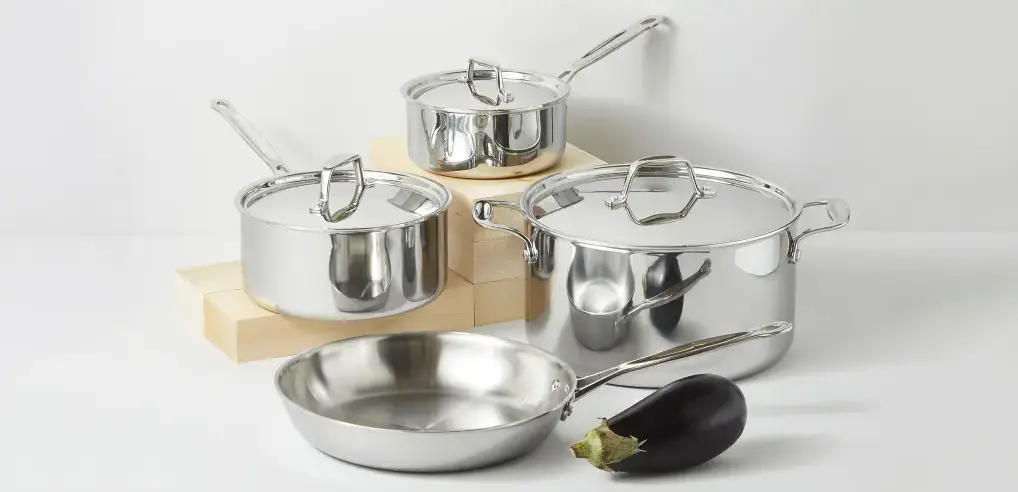
Material Quality
From a material perspective, different cookware materials have different thermal conductivity, weight and durability characteristics. Bulk buyers should evaluate the impact of different cookware materials in actual applications.
✅ How to judge the quality of cookware materials?
The following are the key points for distinguishing the quality of several common cookware materials:
Stainless Steel
- Material grade: High-quality cookware usually uses 304 (18/8) or 316 stainless steel, which has excellent corrosion resistance and food contact safety. 201 stainless steel is cheaper, but has weaker rust resistance.
- Polishing process: High-quality stainless steel has a smooth surface without obvious scratches or sand holes.
- Thickness and number of layers: Multi-layer composite bottoms (such as three-layer and five-layer) can enhance thermal conductivity and pot structure stability. Single-layer pot bottoms are easy to deform.
- Whether it has passed food contact safety certification, such as FDA, LFGB, SGS testing, etc.
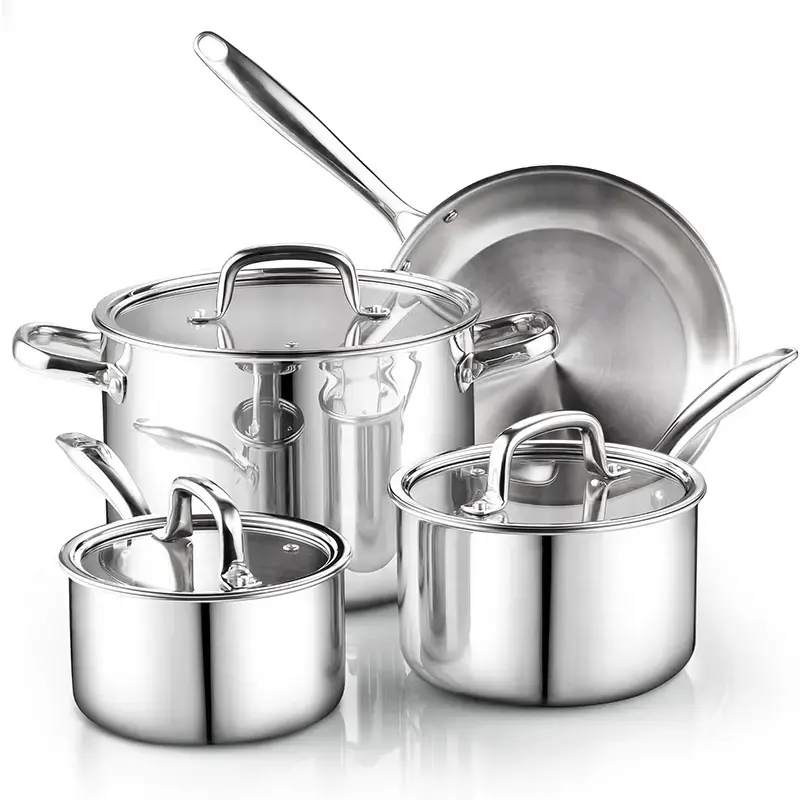
Aluminum
- Whether anodized or not: Pure aluminum is prone to corrosion and oxidation. The outside of high-grade aluminum cookware has to be coated or anodized with ceramic or non-stick coating.
- Hardness and thickness: Quality aluminum is hard to bend, but poor quality aluminum is thin and soft and will bend or cave in under heat expansion and contraction after a lot of usage.
- Thermal conductivity uniformity: Thermal conductivity may be measured by finding whether the bottom of the pot is being heated evenly.
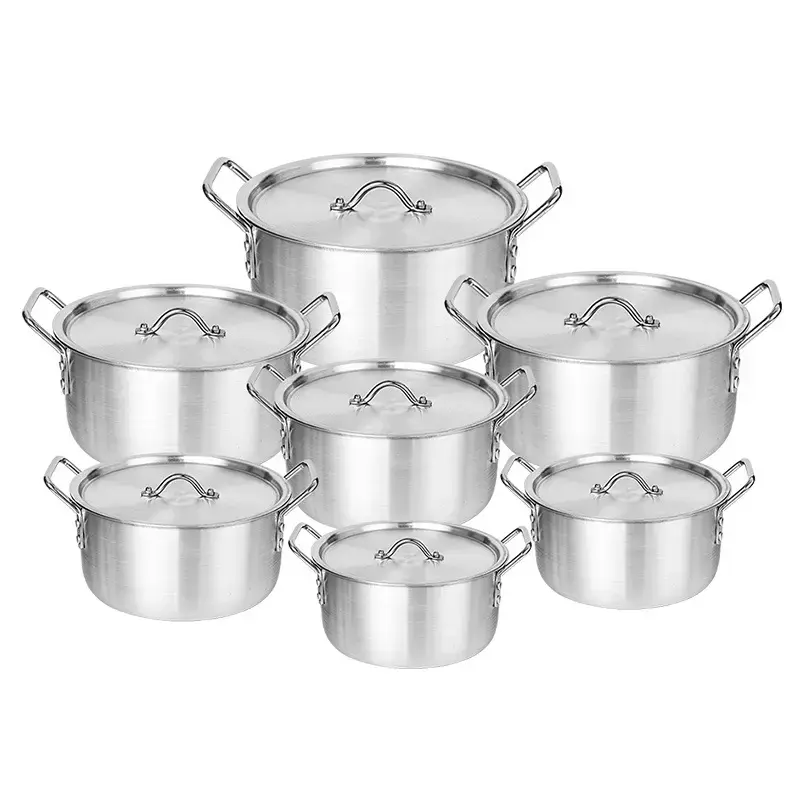
Cast Iron
- Weight judgment: high-quality cast iron pots feel heavy and solid, while inferior products are mostly alloy mixtures, which are light and easy to crack.
- Surface coating: The enamel coating should be smooth, uniform and not fall off, and the bare cast iron surface should be treated with high-temperature rust prevention.
- Knocking sound: A crisp sound is solid cast iron, and a dull sound may have sand holes or impurities.
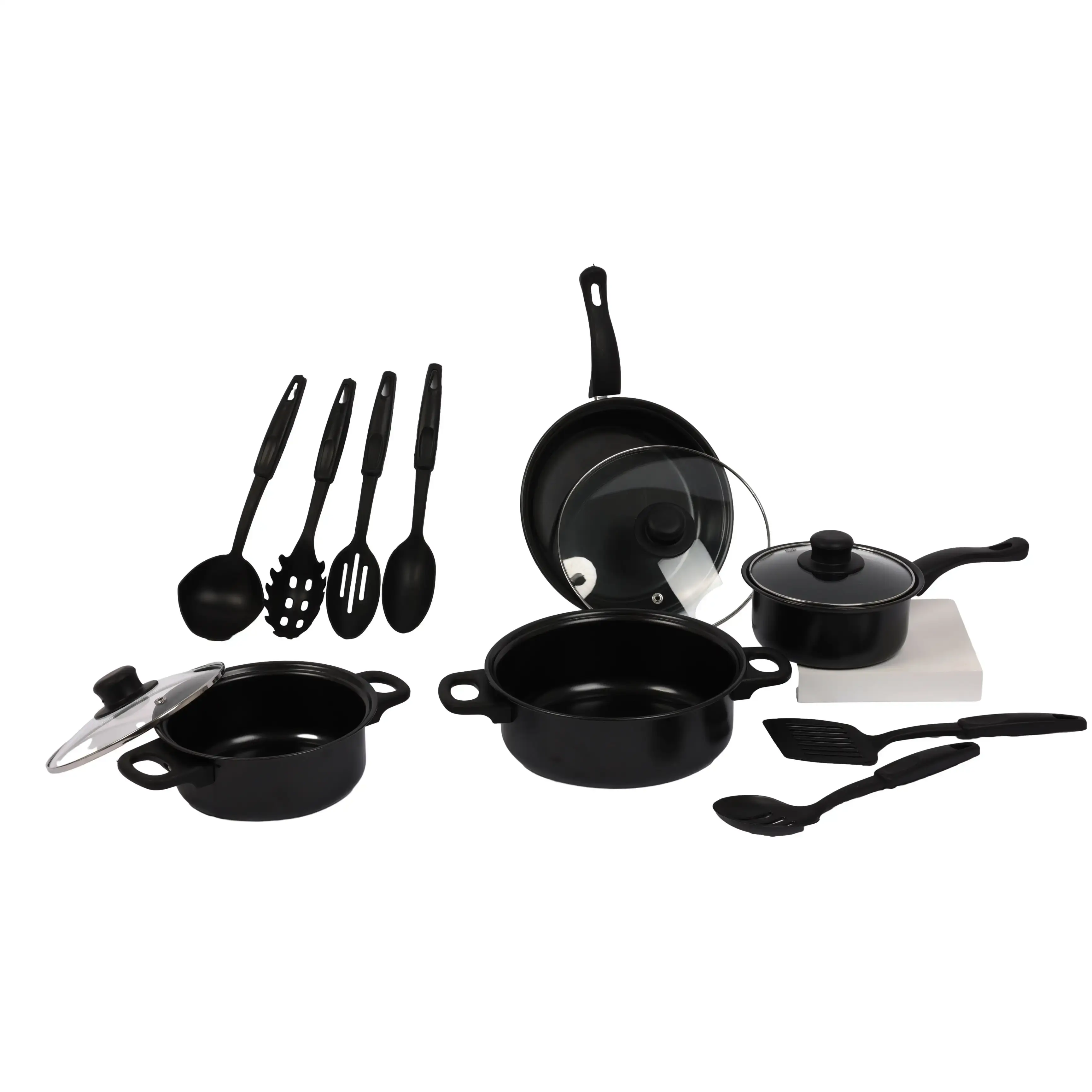
Ceramic Coating
- Surface finish: High-quality ceramic coatings are fine, bright and smooth, without any graininess or uneven color spots.
- Adhesion test: Check whether it is easy to fall off by repeated scrubbing and heating. High-quality ceramic coatings should have certain scratch resistance and wear resistance.
- Is it non-toxic and environmentally friendly: Make sure the coating is PFOA-free, lead-free and cadmium-free.
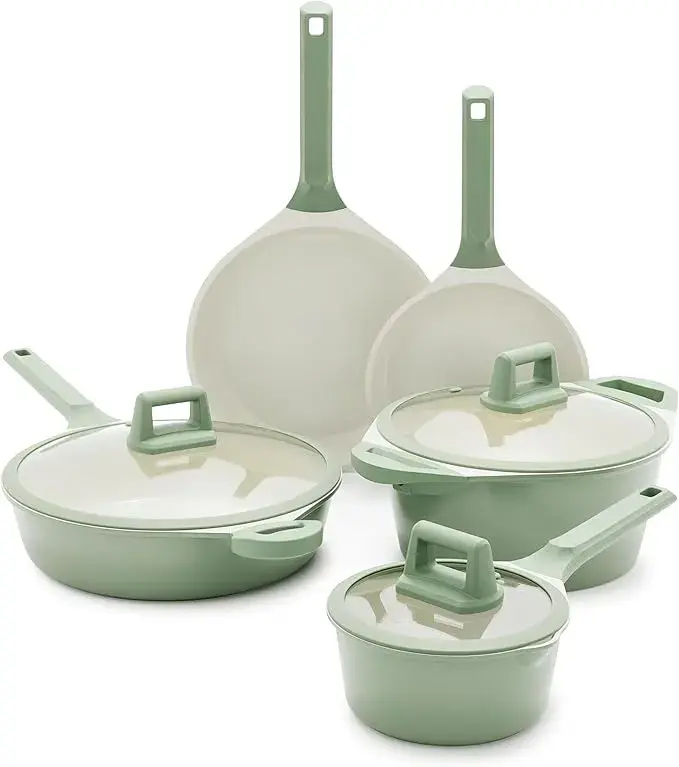
Non-Stick Coating & Safety Standards
If you’re buying nonstick cookware in bulk, check the type of coating used. PTFE (like Teflon) and ceramic coatings are common. Make sure they’re PFOA-free, LFGB certified, and meet FDA food safety standards.
Design & Functionality
Think about what your customers value. If you are a commercial hotel or kitchen, consider your needs in actual application scenarios:
- Stackable and space-saving design
- Stay cool handles
- Tight fitting lid
- Compatible with induction, gas or electric stoves
Functionality matters just as much as appearance—bulk buyers should request product samples to evaluate usability.
Customization Options
For retailers and private labels, customization is key to standing out. A cookware manufacturer that offers:
- Custom colors and finishes
- Laser logo or engraved branding
- Unique handle designs
- Customized packaging
These can give your product a competitive edge in the market.
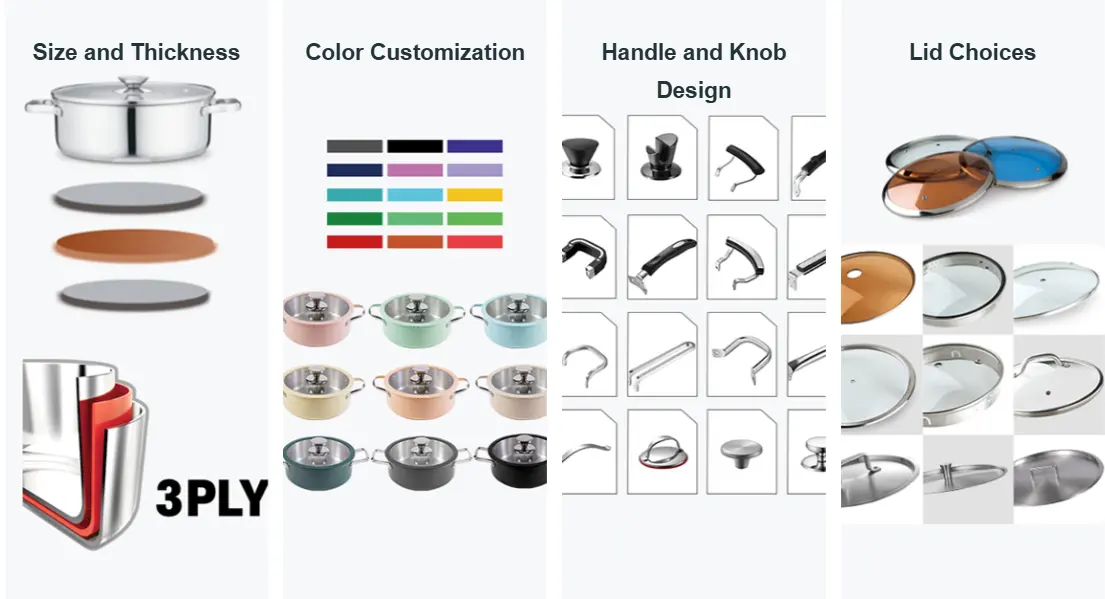
Manufacturer Credibility
Partnering with a reliable cookware manufacturer ensures consistent quality and smooth delivery. Look for a supplier with the following characteristics:
- Many years of OEM/ODM manufacturing experience
- ISO, FDA, LFGB and other certifications
- Positive reviews and global customer recommendations
- Transparent production process
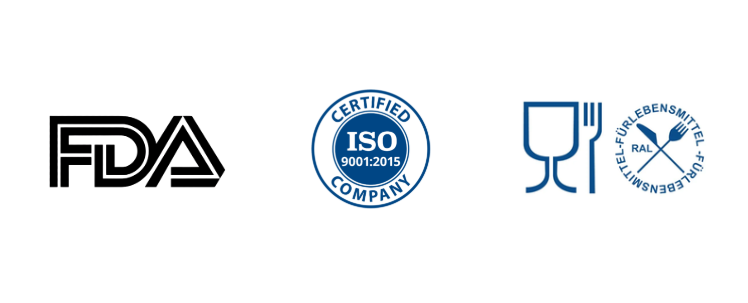
Minimum Order Quantities (MOQs) and Lead Time
Before you commit to an order, find out the supplier’s minimum order quantity. Reliable manufacturers often offer flexible minimum order quantities to new partners while offering competitive pricing for large quantities. It’s also very important to understand the production schedule. Make sure the manufacturer can meet your delivery deadlines, especially during peak seasons.
Quality Assurance & Certifications
Reliable manufacturers follow strict quality control procedures. Make sure your supplier:
- Performs regular inspections
- Offers testing reports for materials and coatings
You should also ask about warranty or return policies, especially for large orders.
Pricing & Payment Terms
Buying cookware in bulk has big price advantages—but always think beyond the price per unit. Compare quotes based on:
- Material grade
- Finishing and polishing
- Customized packaging or branding
- Payment flexibility (deposit terms, letter of credit, wire transfer, etc.)
Always check to see if the list price includes taxes, shipping or customs clearance fees, especially for international purchases.
About Us
Buying cookware in bulk is a smart business move—but only if you work with the right cookware manufacturer. At Purecook, we specialize in OEM and ODM cookware manufacturing, providing end-to-end solutions from design to delivery. Whether you’re a startup launching your own brand, or a large distributor sourcing quality products, we can help.
Contact Us
Don’t hesitate to call usjoy@purecook.com
Don’t hesitate to contact usNo.68 Xianhua Road,HuaqiaoVillage,Caitang Town,Chao'an District,Cha ozhou City,Guangdong Province
